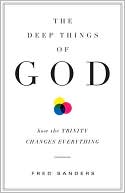Read Acts 21-23:11
It is very easy to get people to hate you. Some Christians even think that it is their calling. The cross is an offense, so they conclude that the more they offend the more they are like Jesus. In fact, not only is this true of some Christians, it is true of many churches. They almost revel in the fact that they are disliked by the culture and communities around them. Some like being disliked because they are so zealous in their moral or religious scruples. Others like being disliked for their lack of moral or religious scruples. In this text, we see Paul as a man who is clearly hated by many. So there is something to this business of not being liked. Your popularity is certainly not the best sign of your effectiveness. The cross is an offense, Jesus was murdered, most of the apostles were martyred.
However, at the same time I think it is helpful in this text to see what Paul was and was not hated for. When Paul gets to Jerusalem, he immediately takes a purification ritual performed by zealous Jews. What is more revealing is the purpose for this ritual, to disprove the accusations that Paul was discouraging the practice of the law by the Jews. Whatever the Jews of the day believed about Paul, the notion that he hated the law and preached its abandonment was false. He was not hated for his cutting edge style of personal devotion. The indications are that in many ways, Paul kept up the traditions of the law.
There was one part of the current tradition that Paul absolutely abhorred, and that was the dislike, even hatred, of the Gentiles. Paul deliberately broke the rituals of separation with Gentiles (Galatians 2:11-14). And it was this aspect of Paul’s ministry that put him into so much trouble. The Jewish leaders erupted a riot against him in the temple because they thought he brought in a Gentile. They Jewish crowd quietly listened to Paul’s defense until he declared that God called him to go to the Gentiles (Acts 22:21-22). The Jewish leaders hated the gospel of Jesus, but what they hated more were the implications of the gospel that said all men can have the future and eternal blessings given to Israel in Jesus.
I think there is a helpful lesson here. Repudiating the sometimes unbiblical traditions (that is, traditions not clearly mandated in Scripture) in the church simply because they are old, aren’t cool, etc. seems out of sync with the example of Paul (and Jesus for that matter). What we should cast off are the traditions, attitudes, practices, etc. that result in the exclusion of outsiders. In other words, new vs. old or trendy vs. untrendy are not the categories Christians should think in. Arrogance vs. humility, legalism vs. repentance, traditions-centered vs. Christ-centered are the sorts of categories that Christians should think in. Sometimes certain Christian beliefs and practices will be trendy and other practices unpopular. Indeed, that is the way it has always been and always will be. Christianity and Jesus are always loved and hated for different reasons in different cultures and times. Nevertheless, inclusion into the Christian community should not depend upon one’s adherence to certain traditions but to one’s connection to Christ. Of course, this issue is complex and deserves more qualification. For example, the pattern of one’s life choices is the only way to determine one’s connection to Christ, so certain practices are necessary. But the general unqualified point is that we should seek to eliminate any dividing wall except that of Christ, and the dividing wall can be a trendy or traditional one.
Tuesday, October 14, 2008
Subscribe to:
Post Comments (Atom)









No comments:
Post a Comment